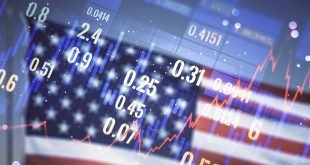Preparing for Market Volatility Ahead of the US Election
As the US election approaches, investors are bracing for potential market moves and fluctuations. Preparing for these shifts involves several strategic steps to mitigate risk and capitalize on opportunities.
One of the most important strategies is portfolio diversification. By spreading investments across different asset classes, sectors, and regions, investors can cushion the impact of market volatility. This reduces the risk associated with any single investment and ensures that portfolio performance is not overly reliant on one area. Investors should also consider including safe-haven assets in their portfolios.
Gold and government bonds are often seen as safe havens during times of economic or geopolitical uncertainty. These assets can provide stability and act as a hedge against market downturns.
Staying informed is crucial. Keeping up with the latest news, economic indicators, and policy proposals from the candidates can help investors make informed decisions. Understanding the potential impact of election outcomes on various sectors and the overall economy enables investors to anticipate and react to market movements.
Hedging strategies, such as options and futures, can be effective tools for managing volatility and limiting losses. By using these instruments, investors can protect their portfolios against adverse market movements while still participating in potential upside gains.
Focusing on resilient sectors is another key strategy. Sectors such as infrastructure, healthcare, and technology often have long-term growth potential and can perform well regardless of the election outcome. These industries are likely to benefit from ongoing investment and innovation, providing a buffer against market turbulence.
Maintaining a long-term perspective is essential. While elections can cause short-term market fluctuations, it’s important to stay focused on long-term investment goals. Avoid making impulsive decisions based on temporary market movements and remain committed to a well-thought-out investment strategy.
For personalized guidance, consider consulting with a financial advisor. A professional can provide tailored advice based on individual financial situations and goals, helping investors navigate the complexities of the market during the election period.
Anticipated Market Fluctuations
Several key factors are expected to contribute to market volatility during the US election. One significant factor is the potential for increased market volatility due to the close race and the possibility of delayed election results. Prolonged uncertainty could lead to short-term market instability as investors react to evolving developments.
Policy changes proposed by the candidates are also likely to impact specific sectors and overall market sentiment. For example, changes in tax policies, trade tariffs, and immigration could have significant implications for businesses and industries. Investors should closely monitor these proposals to understand their potential impact on the market.
Market sentiment is another critical factor. Sentiment favoring one candidate over another can influence investor behavior and market movements. For instance, favorable sentiment towards a candidate perceived as pro-business may lead to a market rally, while uncertainty or unfavorable sentiment could result in a sell-off.
Lastly, economic indicators and data releases leading up to the election will play a crucial role in shaping market expectations. Key data points such as ISM Manufacturing PMI and Nonfarm Payrolls (NFP) will provide insights into the health of the economy and influence investor sentiment. Positive data could support the US Dollar and equity markets, while disappointing data could lead to increased volatility.
Preparing for market moves and fluctuations around the US election involves diversifying portfolios, considering safe-haven assets, staying informed, using hedging strategies, focusing on resilient sectors, maintaining a long-term perspective, and seeking professional advice. By taking these steps, investors can better navigate the uncertainties and capitalize on potential opportunities during this critical period.
 Noor Trends News, Technical Analysis, Educational Tools and Recommendations
Noor Trends News, Technical Analysis, Educational Tools and Recommendations





